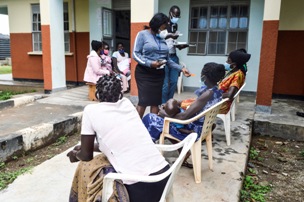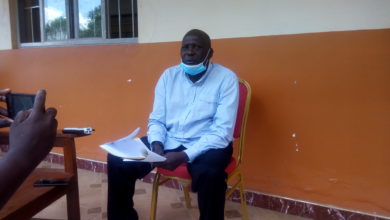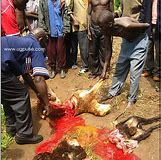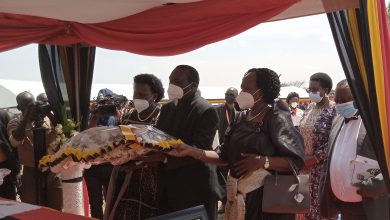
Global Politics
UGANDA: INADEQUATE SKILLS FRUSTRATE POST COMPLICATIONS MANAGEMENT AMONG MEDICAL WORKER-SPECIALISTS
The problems caused by FGM among women require more experts and skilling of other medical personnel in Uganda.
Shocking revelation that left reader wonder why such traditional norms is still being practice in the 21st Century,
“Irene Cherotich, a nursing officer from Bukwo general hospital has witnessed many women who underwent FGM, releasing blood and stool at the same time after giving birth or having abortions.”
By Martin Mangusho
Health workers conducting repairs on victims of Female Genital Mutilation (FGM) are concerned by
the lack of adequate skills to support for patients, a tendency that frustrates effective case management.
FGM that is practiced in parts of Karamoja and Elgon regions of Uganda leaves many women and girls with short and long-term problems.
Among these include; bleeding, pain, shock as the short-term problems but the long-term issues caused by FGM are more disturbing to women. These include Fistula, painful periods, urination, sex, tearing of the vulva when giving birth to children, sepsis, Keloids, stigma, trauma, infertility and fibrosis.
Sharon Chekwurui, an enrolled midwife at Lemusui Health Centree III in Nakapiripirit district says helping women who have undergone FGM is a challenge. Most of them get tears, due to the scars that remain after the FGM and in most cases, because of inadequate skills, the women are referred to other health Centers.
Irene Cherotich, a nursing officer from Bukwo general hospital has witnessed many women who underwent FGM, releasing blood and stool at the same time after giving birth or having abortions.
Dr. Leonard Cheptoyek, from Kapchorwa says FGM long – term problems like sepsis, Keloids, stigma, trauma, infertility and fibrosis need specialized knowledge after training, but even the specialists may not ultimately treat them off.
“FGM problems like sepsis, Keloids, stigma, trauma, infertility and fibrosis are not managed well by health experts due to lack of adequate skills, but other like Keloids may never heal after a woman undergoes FGM” Dr. Cheptoyek.
He says most nursing officers, midwifes and clinical officers must always refer these cases to specialists who at most times may apply hybrid steroids. But these on many occasions fail and counseling remains the last resort.
According to Dr. Rogers Masaba, from Mbale, the problems caused by FGM among women require
more experts and skilling of other medical personnel in Uganda.
For example, FGM causes Obstetric fistula, which is a health condition that leaves a hole between the
birth canal and the bladder or rectum caused by prolonged, obstructed labour without treatment. Women in this condition often leak urine and faeces.
Although the problem can be corrected through specialized intravaginal surgery, postoperative care and physical rehabilitation offered to victims, specialists say that they are frustrated by the inadequate skills among medical experts, and few gynecologists, fistula specialists in most of these areas, leading
to failure to support their patients.
Dr. Masaba, adds that in most cases, health workers also wish to pass on healthcare guidance messages to couples, which can hardly be done in the absence of skills.
He has appealed to medical practitioners to be knowledge seekers, courageous and stand with their post FGM patients to see them through the challenging psycho and socio situations, right from the time of pregnancy throughout seeking antenatal care and the after delivery.
It is for the reasons above that Reproductive Health Uganda (RHU) and United Nations Population
Fund (UNFPA) organized a training session for health workers in Kapchorwa. Demeter Margret Namuyobo, RHU Medical Coordinator says the medical personnel should be continuously refreshed to acquire skills and care for FGM affected patients at health Centre’s in Uganda.
According to Uganda Bureau of Statistics 2020 report Nowadays, girls tend to be mutilated at a younger age than in the past. Age at cutting appears to be lower among Pokot communities in
Karamoja (around 14–15 years) than among the Sabiny in Sebei (17–19 years). Among Pokot women,
FGM is still being carried out mostly on adolescent girls as a rite of passage before marriage. Among the Sabiny, FGM is increasingly performed among older uncut married women.
Among the six districts of Kapchorwa, Bukwo and Kween in Sebei, and Nakapiripirit, Moroto and
Amudat in Karamoja, according to the 2016 Uganda Demographic Health Survey, the average prevalence rate of FGM across the six districts in eastern Uganda was 26.6%.






